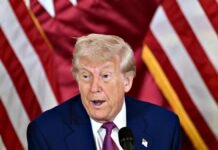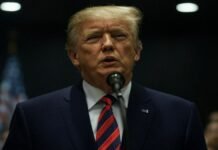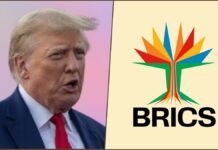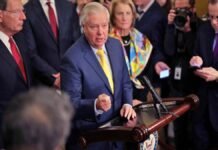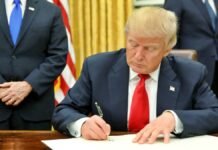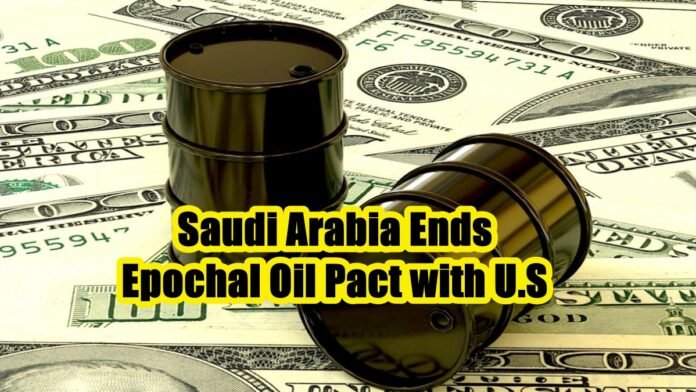
New Delhi: In a landmark decision that reshapes the geopolitical and economic landscape, Saudi Arabia has officially ended its longstanding petrodollar agreement with the United States. This agreement, which has been a pivotal element of global finance since its inception on June 8, 1974, was not renewed upon its expiration on June 9, 2024.
Background of the Petrodollar System
The petrodollar system emerged in the aftermath of the United States’ departure from the gold standard. It refers to the practice of pricing and trading global crude oil in U.S. dollars. The arrangement was born out of negotiations between the U.S. government then under President Richard Nixon and Secretary of State Henry Kissinger and the Saudi royal family.
The Original Deal
Under the 1974 agreement, Saudi Arabia committed to selling its oil exclusively in U.S. dollars in exchange for U.S. military aid and security guarantees for the Saudi regime. This deal not only ensured a consistent demand for the U.S. dollar but also solidified its status as the primary reserve currency globally.
Significance of the Petrodollar
The petrodollar system has had profound implications:
- U.S. Dollar Dominance: It reinforced the U.S. dollar’s role as the dominant currency in international trade.
- Economic Stability: The system allowed the U.S. to sustain large trade deficits without immediate economic consequences.
- Geopolitical Influence: It secured a strategic U.S.-Saudi alliance, with significant influence over the oil-rich Middle East.
- Financial Markets: Surplus dollars from oil exports were often reinvested into U.S. assets, bolstering American financial markets and government debt.
Consequences of the Agreement’s Termination
The cessation of this agreement signals several potential shifts:
- Global Currency Realignment: The end of oil sales exclusively in U.S. dollars could reduce the global demand for the dollar, potentially elevating other currencies or even cryptocurrencies.
- Exchange Rate Volatility: Diminished dollar demand may lead to increased volatility in exchange rates and financial markets.
- U.S. Financial Challenges: Without the steady influx of petrodollars, the U.S. might encounter difficulties in financing its deficits, possibly leading to higher interest rates and fiscal policy adjustments.
- Geopolitical Realignment: Saudi Arabia may forge stronger ties with other global powers, altering the geopolitical dynamics of the Middle East and beyond.
- Oil Market Dynamics: A move towards accepting multiple currencies for oil could diversify and complicate the oil market, affecting prices and trading practices.
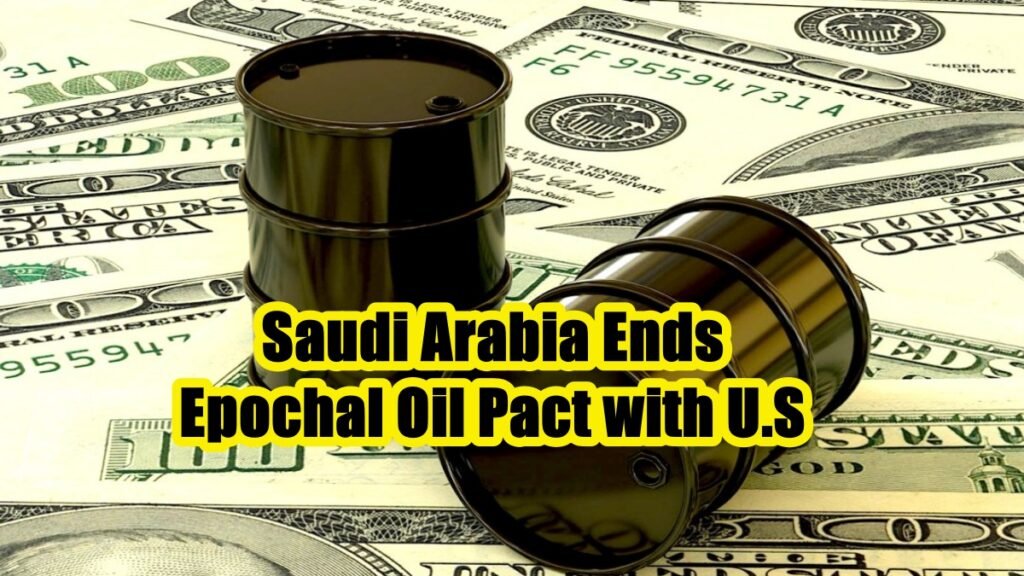
Looking Ahead
The decision by Saudi Arabia to not renew the petrodollar agreement marks a pivotal moment that could redefine international relations and the global economy. As the world adjusts to this new reality, the full impact of this shift remains to be seen. The involvement of Saudi Arabia in Project mBridge, aiming to develop a digital currency platform for central and commercial banks, indicates a step towards a future where digital currencies may play a significant role in global trade.







